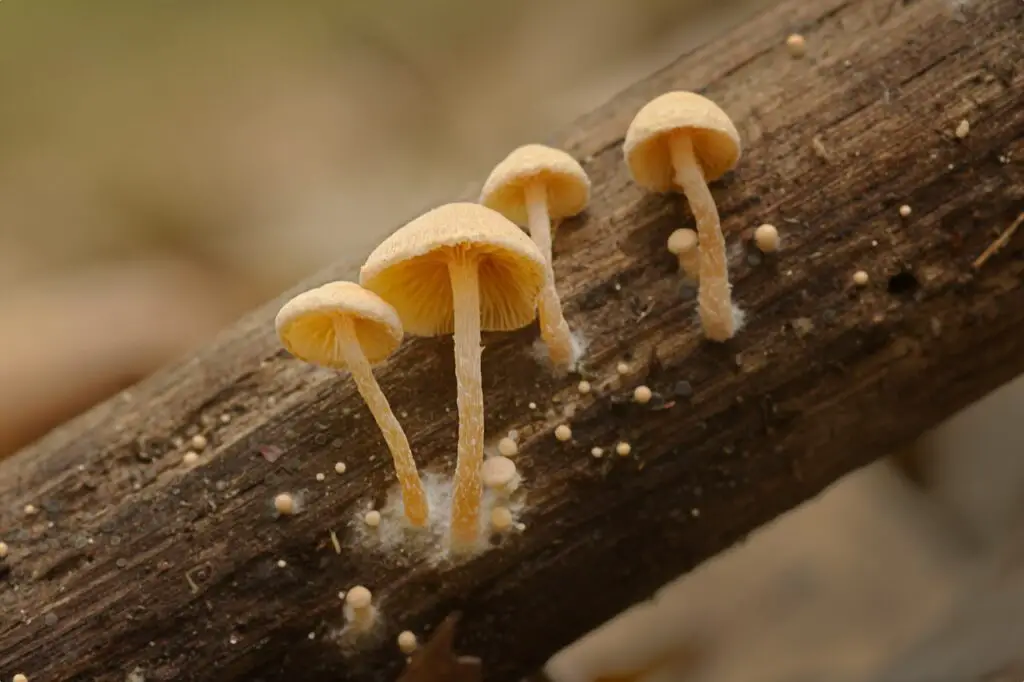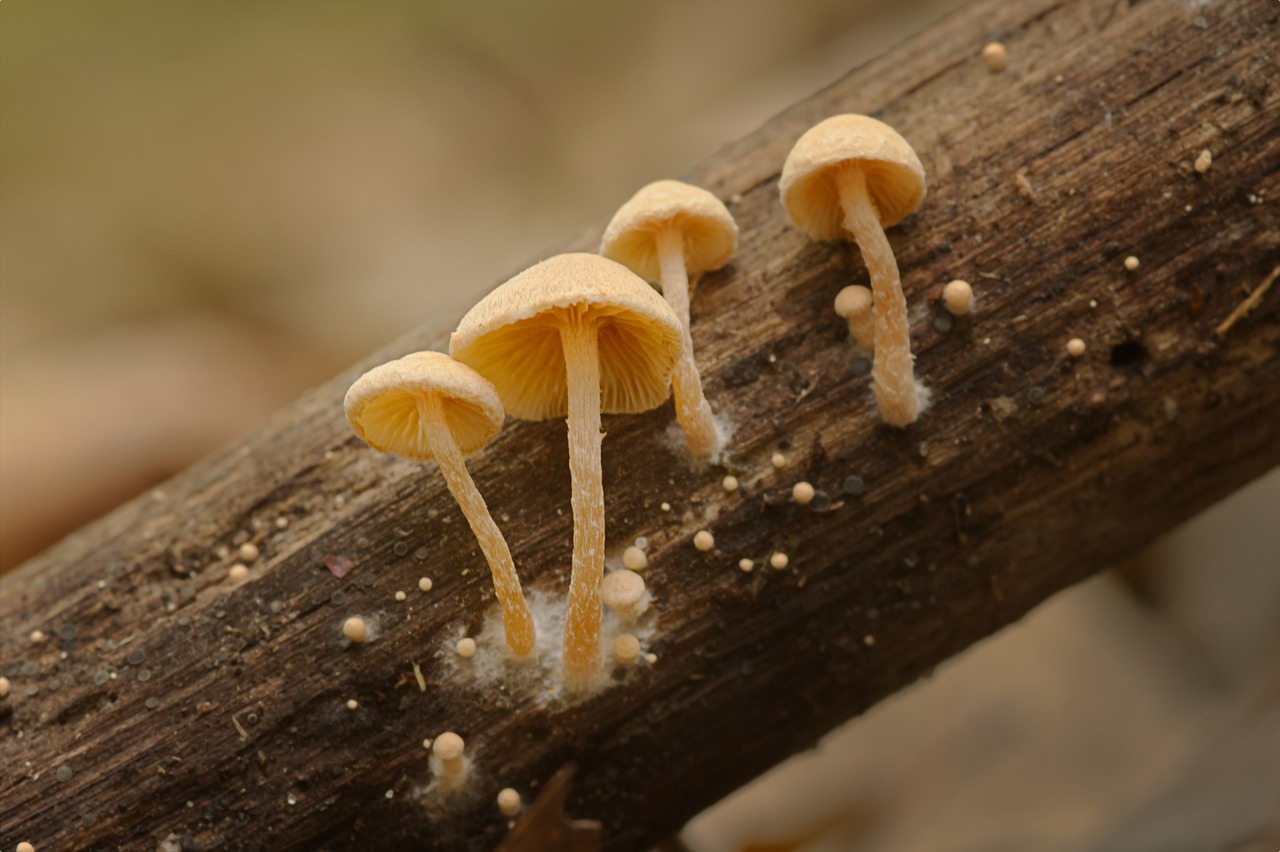As you embark on this exploration of the natural world, it’s essential to recognize the often-underestimated role of mushrooms as decomposers. These unassuming fungi, easily overlooked, are critical players in maintaining ecological balance.
In this brief introduction, we’ll shed light on the fascinating world of how mushrooms, serve as nature’s diligent decomposers, breaking down organic matter and recycling essential nutrients for the benefit of ecosystems and life as we know it.
From Waste to Wonder: How Mushrooms Are Decomposers
You might not realize it, but mushrooms are nature’s cleanup crew. They work behind the scenes, breaking down dead plants, animals, and other organic matter. This decomposition process turns waste into valuable nutrients that nourish the soil and support plant growth. These mushrooms are like nature’s recyclers, ensuring that nothing goes to waste in the ecosystem. But there’s more to their story, and we’ll explore it further in this explanation.

What Are Mushroom Decomposers, and How Do They Work for You?
When you think about mushrooms, you probably envision them as a tasty addition to your favorite dishes or as a curious sight during a nature hike. But what you might not realize is that mushrooms are not just passive bystanders in the natural world; they are essential decomposers actively working for you and the environment.
In this article, we will explore what mushroom decomposers are and how they play a crucial role in maintaining the balance of nature.
Mushrooms: More Than Meets the Eye
As you encounter mushrooms in various settings, it’s easy to overlook their vital function in the ecosystem. These fungi, often nestled in the soil or thriving on decaying matter, are far more than simple organisms. They are nature’s cleanup crew, diligently breaking down organic materials to recycle nutrients.
Mushroom Decomposers: The Unsung Heroes
Mushroom decomposers are fungi that specialize in breaking down dead or decaying organic matter, such as fallen leaves, logs, and even deceased animals. They thrive on this decaying material, utilizing enzymes to break down complex compounds into simpler forms that can be reused by other living organisms.
The Decomposition Process Unveiled
From your perspective, it’s crucial to understand how this decomposition process works. When mushrooms come into contact with organic matter, they release enzymes that break down complex molecules like cellulose and lignin. These compounds are often tough and resistant, but mushrooms have evolved to conquer them.
Recycling Nutrients
The real magic happens as mushrooms decompose organic matter. As they break down these complex compounds, they release essential nutrients like nitrogen and phosphorus into the soil. These nutrients become accessible to plants and other organisms, forming a critical part of the nutrient cycle.
Beneficial Mycorrhizal Relationships
Some mushrooms, such as mycorrhizal fungi, form mutually beneficial relationships with plants. In these partnerships, mushrooms assist plants in absorbing water and nutrients from the soil while receiving sugars from the plants in return. It’s a win-win scenario that enhances both plant growth and the mushroom’s survival.
Fungi: The Silent Transformers
From your perspective, it’s fascinating to realize that mushrooms are silent transformers of the natural world. They are responsible for turning the remnants of life into fertile soil, supporting the growth of new organisms, and maintaining the health of ecosystems.
Mushrooms for a Sustainable Future
Understanding mushroom decomposers’ role in nature can inspire environmentally conscious practices. By appreciating their vital function, you can see the importance of protecting and preserving the habitats where these fungi thrive
Why Mushroom Decomposers Are Crucial for You and the Planet
As you go about your daily life, it’s easy to underestimate the significance of the often-overlooked world of mushroom decomposers.
However, in this article, we’ll delve into why these unsung heroes are crucial, not just for the environment but for you and future generations as well.
Maintaining Ecosystem Health
From your perspective, the health of ecosystems may not always be at the forefront of your mind. However, mushroom decomposers play a pivotal role in maintaining the balance of these ecosystems. They are responsible for breaking down and recycling organic matter, including dead plants, animals, and even waste. This decomposition process cleans up the environment and ensures that essential nutrients are returned to the soil.
Soil Enrichment for Agriculture
If you’re a gardener or have an interest in agriculture, you’ll appreciate the value of healthy soil. Mushroom decomposers contribute significantly to soil enrichment. They break down complex organic compounds into simpler forms that plants can absorb. This means more fertile soil, higher crop yields, and ultimately, a more sustainable food source for you and future generations.
Carbon Cycling and Climate Change Mitigation
Concerned about climate change? Mushroom decomposers have a part to play here as well. When they break down organic matter, they release carbon dioxide into the atmosphere. While this might sound counterintuitive, it’s an essential part of the carbon cycle. By maintaining this cycle, they help mitigate the effects of climate change by ensuring that carbon remains in circulation and doesn’t become locked away in long-dead matter.
Fungi as Nutrient Recyclers
Fungi, including mushroom decomposers, are experts at nutrient recycling. They break down complex compounds into forms that can be readily used by other organisms. This means that nutrients remain accessible to plants, which, in turn, become part of the food chain. Ultimately, this nutrient recycling affects you by sustaining the diversity of life on Earth.
Symbiotic Relationships with Plant
You may not realize it, but some mushroom decomposers engage in symbiotic relationships with plants. Mycorrhizal fungi, for example, form partnerships with many plants, enhancing their ability to absorb water and nutrients. This not only benefits plant growth but also leads to healthier forests and ecosystems, which ultimately impact the air you breathe and the landscapes you enjoy.
Medicine and Biotechnology
While not immediately obvious, the study of mushroom decomposers has led to significant advancements in medicine and biotechnology. These fungi produce compounds with various applications, from antibiotics to potential cancer treatments. The knowledge gained from understanding mushroom decomposers has direct and indirect benefits for human health and well-being.
Final Thoughts
In conclusion, you now understand the vital role that mushrooms, as decomposers, play in our world. From breaking down organic matter to recycling nutrients and enriching soil, they silently contribute to the health of ecosystems and the sustenance of life.
So, the next time you come across a mushroom, whether in your backyard or in the forest, remember their essential function as nature’s cleanup crew, working diligently for the benefit of you, the environment, and the planet as a whole.
